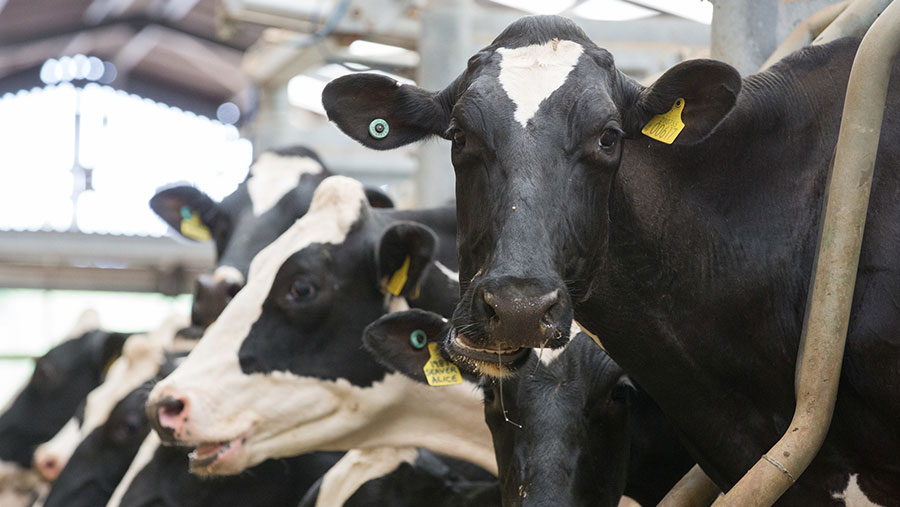Farmers plan to make #Februdairy month of dairy celebration
 © Tim Scrivener
© Tim Scrivener A new initiative is aiming to flood social media with positive messages about milk production over the course of next month.
Dairy farmers are being encouraged to share 28 short, positive, factual posts using the hashtag #Februdairy to celebrate every facet of the industry.
The initiative was first conceived 12 months ago in a conversation between industry experts but gained momentum following a tweet from independent livestock sustainability consultant Dr Jude Capper (@Bovidiva).
Let's make #Februdairy happen this year. 28 days, 28 positive #dairy posts. From cute calves and #cheese on crumpets, to belligerent bulls and juicy #beef #burgers – who's in? #SmxConf18 pic.twitter.com/lewu2pLUhS
— Prof. Jude Capper ??? (@Bovidiva) January 15, 2018
“Whenever I speak to groups I always say, you need five positive messages about farming to counter one negative one,” said Dr Capper.
“#Februdairy will be one month of dairy people posting, liking and retweeting examples of what we do and why we do it.”
“It’s a simple idea that doesn’t require lots of time, money or letters to the Guardian and everyone can get involved.”
See also: New toolkit launched to help farmers promote dairy online
Dr Capper went on to add that images – especially videos – were the best way of offering a transparent window into the day-to-day lives of dairy farmers.
“Often with people who oppose the dairy industry, if they can’t see it physically, they won’t believe that negative things aren’t happening – so short videos are perfect and we can all create them.”
A twitter handle has also been set up to showcase and share the best content produced across the month. (@februdairy)
Jude’s top tips for engaging with activists online:
1. Keep answers short, positive and factual. It is crucial we are open and honest as an industry and are clear about what we do. Long, technical answers will confuse and disengage and leave your answer exposed to being picked apart.
2. Answer and engage with sensible questions. Many people will have genuine questions about our industry, it’s our responsibility to inform people willing to listen.
3. Don’t reply to everybody. Some people who are rude or get personal will not be reasoned with and answering them will only waste your time.
4. Call out obvious untruths. Use evidence (pictures and videos are great) and experience to address obvious myths and lies being disseminated online.
5. Don’t block people. If you block people online they think you are “rattled” or have something to hide. You can mute conversations of people who use unacceptable language or who are not interested in serious discussion.
